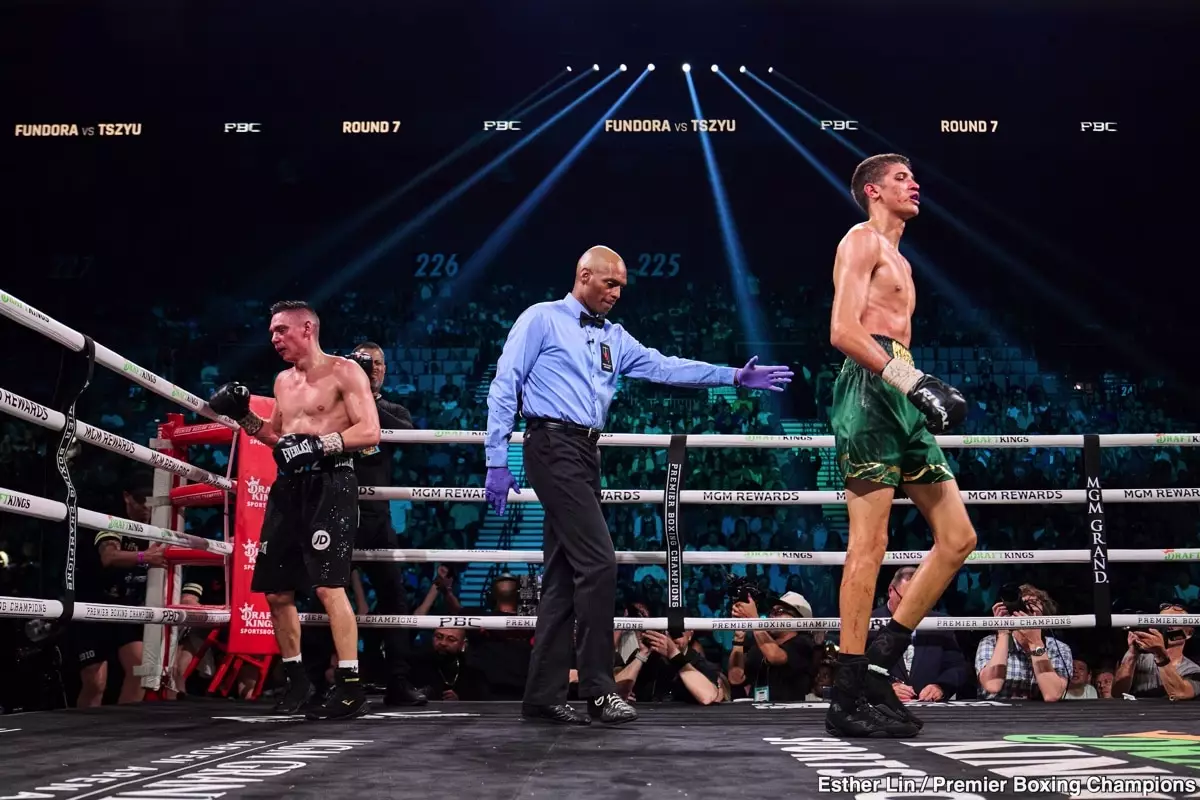In the aftermath of his recent loss to Sebastian Fundora, Tim Tszyu’s reflections reveal a fighter grappling with the harsh truth of his current limitations. The defeat, a technical knockout in the seventh round, starkly exposes the gap between aspirations and reality. Despite proclaiming his unwavering pursuit of greatness, Tszyu’s words resonate with a quiet acknowledgment of the brutal truth: he is not yet at the level he aspires to reach. For a fighter whose career has been marked by promising moments overshadowed by inconsistencies, this loss underscores the necessity of a strategic reevaluation. The ongoing narrative that perseverance alone guarantees victory is superficial; what truly separates champions from hopefuls is the ability to critically assess weaknesses and make decisive changes.
Questioning Leadership: The Critical Role of Team and Management
A significant aspect of Tszyu’s struggles lies behind the scenes—his training and management structure. Critics argue that his coaching team and fight selection have not helped him realize his potential. The choices of opponents like Fundora and Murtazaliev appear questionable, especially considering Tszyu’s vulnerabilities against veterans. The reluctance or inability to rectify strategic flaws, coupled with management decisions, raises doubts about the long-term sustainability of his current trajectory. The hope that merely enduring these setbacks without drastic changes in his support system will lead to success is misplaced. To truly evolve, Tszyu must cultivate a sharper, more adaptable team capable of guiding him through complex fights and tougher competition. Without that evolution, his future prospects remain bleak.
The Divisional Dilemma: Staying or Moving Down?
The division at 154 pounds is packed with formidable talent. Tszyu’s current weight class demands peak performance against seasoned fighters who are already well-rounded and battle-hardened. Given the depth of the talent pool, it’s arguable that his best strategy might be to cut down to welterweight—where the competition appears comparatively less daunting. Moving down could unlock opportunities for quick title wins and potentially accelerate his path toward the elite. However, this move isn’t without risk; weight cuts can impair performance and expose different vulnerabilities. Nonetheless, holding onto his current division may limit his growth, confining him to a cycle of mid-tier fights whose outcome is predictable rather than transformative.
Redefining the Fighter’s Journey
Tszyu’s words reflect a philosophical understanding: greatness isn’t purely about victory but about who one becomes in pursuit of excellence. Yet, claiming that his transformation lies solely in perseverance ignores the necessity for tactical innovation and honest self-assessment. Fighters who aspire to dominance must be willing to reinvent themselves, scrutinize their techniques, and adapt their approach entirely—not merely persist in a familiar, yet flawed, path. Tszyu stands at a crossroads, where continued reliance on past methods will inevitably consign him to mediocrity. True greatness requires courage; the kind of courage that urges a fighter to overhaul training, reconsider divisions, and seek out the toughest challenges with a smarter game plan. Anything less is a fantasy that masks the uncomfortable truth: the road to greatness demands relentless evolution.

